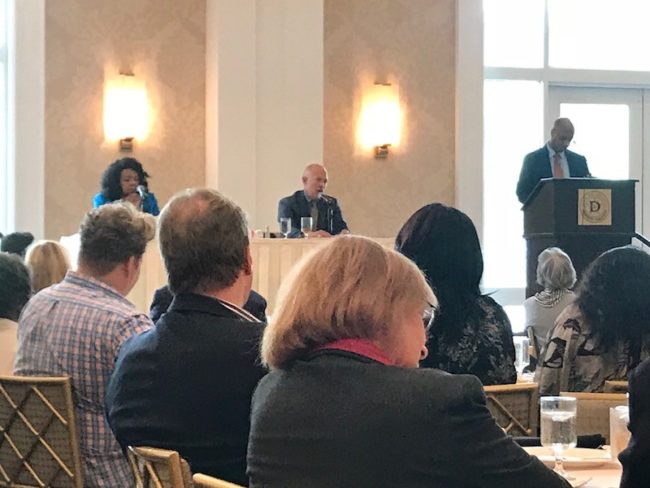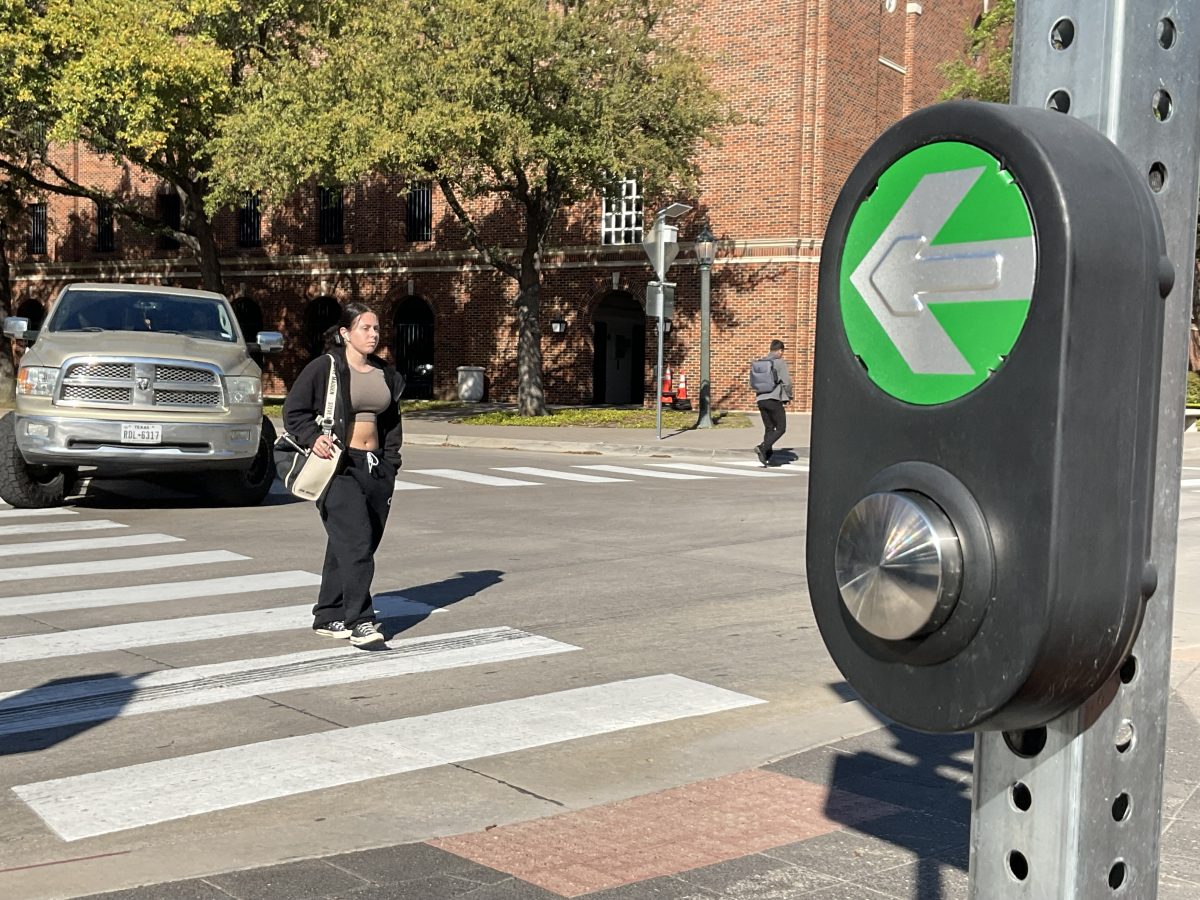Dallas County District Attorney candidates, Democratic nominee John Creuzot and Republican incumbent Faith Johnson, participated in a public forum Friday.
The discussion, which began promptly at noon in the Belo Mansion, was moderated by Reporter Gromer Jeffers from The Dallas Morning News. The former state district judges discussed Dallas’ most prevalent criminal justice issues, including mass incarceration, bail reform, police brutality, and the death penalty.
The District Attorney plays a crucial role in the criminal justice system, and as a locally elected official, the public has the opportunity to significantly influence the system with their vote.
Back in March, John Creuzot narrowly won the Democratic primary race against Elizabeth Davis Frizell by 589 votes. Frizell later filed a lawsuit to contest the validity of the results by alleging voter fraud, but dropped the suit in July and endorsed her former opponent.
Republican District Attorney Faith Johnson, who was appointed by Governor Greg Abbott upon the resignation of former District Attorney Susan Hawk in September, ran unopposed in the Republican primary. Despite representing different parties, both Creuzot and Johnson are running on similar platforms for criminal justice reform.
In January, a federal class action lawsuit was filed against Dallas County alleging discriminatory bail practices targeting the poor. A coalition of civil rights organizations, including the ACLU, Civil Rights Corp, and the Texas Fair Defense Project filed the suit. It claimed that Dallas was violating the constitutional rights of those who were arrested and held for days, even weeks because they could not afford bail to buy their freedom, while similar defendants who could afford bail were allowed to walk free.
When the candidates were asked about the suit, District Attorney Johnson claimed that she “absolutely” believes the bail system needs reform and that she had begun working on the issue long before the lawsuit.
Creuzot, in response, claimed that Dallas only began to address the issue when they “saw [the lawsuit] coming” after a similar lawsuit was filed against Harris County. He agrees with the suit in alleging that the current bail system is unconstitutional, and suggests reform within the first 90 days if elected district attorney by implementing risk assessment initiatives that take into account how likely the defendant is to show up to trial, commit new offenses, act as a threat to society and pay their bail.
“I plan to personally write to the court that’s handling this current case, [and tell them that] the current system is unconstitutional so we make it clear exactly where the DA stands,” Creuzot said.
District Attorney Johnson acknowledges a disparity in treatment in regards to race and class. She claims that “the root cause of mass incarceration is unequal justice,” but suggests that her work as district attorney has shown her commitment to “evening the playing field” as her office holds prosecutors to a strict standard that demands they uphold equal justice. She takes pride in her work expanding the Conviction Integrity Unit with the National Innocence Project and believes that her involvement in the exoneration of two people shows her commitment to justice.
“I am committed to making sure not one innocent person spends a second in jail,” Johnson said.
Creuzot agreed with Johnson’s assessment about inequality, claiming mass incarceration is “the most important issue of the race,” and suggested that the first step to addressing the issue is understanding that inequality is related directly to race.
“If you are a person of color, you are more likely to be arrested. If you’re more likely to get arrested, you are more likely to get charged,” Creuzot said. “If you’re more likely charged, you’re more likely to get prosecuted, and if you are more likely to get prosecuted, you’re more likely to get a criminal record. That makes you less likely to get a job. That’s not justice for all.”
Creuzot claims that is why he started DIVERT court, or the Diversion and Expedited Rehabilitation and Treatment program, a program which has proven to be effective in reducing recidivism rates, new crimes, and probation violations. To combat mass incarceration, he believes in better utilizing this program, improving existing cite and release policies for low-level drug offenders, reforming the bail system, conviction integrity, and making a strong distinction between victimless nonviolent crimes and those that actually pose a threat to society.
When discussing police brutality, Creuzot claims there are two main areas we can control, accountability and police training, citing video evidence as one of the main factors in prosecuting police officers. Specifically, he believes police should adopt policies like body cameras to ensure that officers are held accountable when incidents happen.
Johnson said she strongly supports the police, but in cases like that of the shooting of 15-year-old black boy Jordan Edwards by a white Balch Springs policeman, it is clear that officer “Roy Oliver was a bad apple.”
She believes it is a matter of honor that Dallas was able to get justice for the victim’s family when in many other similar situations around the country, they have failed. Oliver was sentenced to 15 years for murder in August.
This discussion comes the day after white Police Officer Amber Guyger shot and killed Botham Shem Jean, an unarmed black man in his own Dallas home on Thursday after she entered his apartment mistaking it for her own. She was arrested and charged with manslaughter on Sunday afternoon.





















